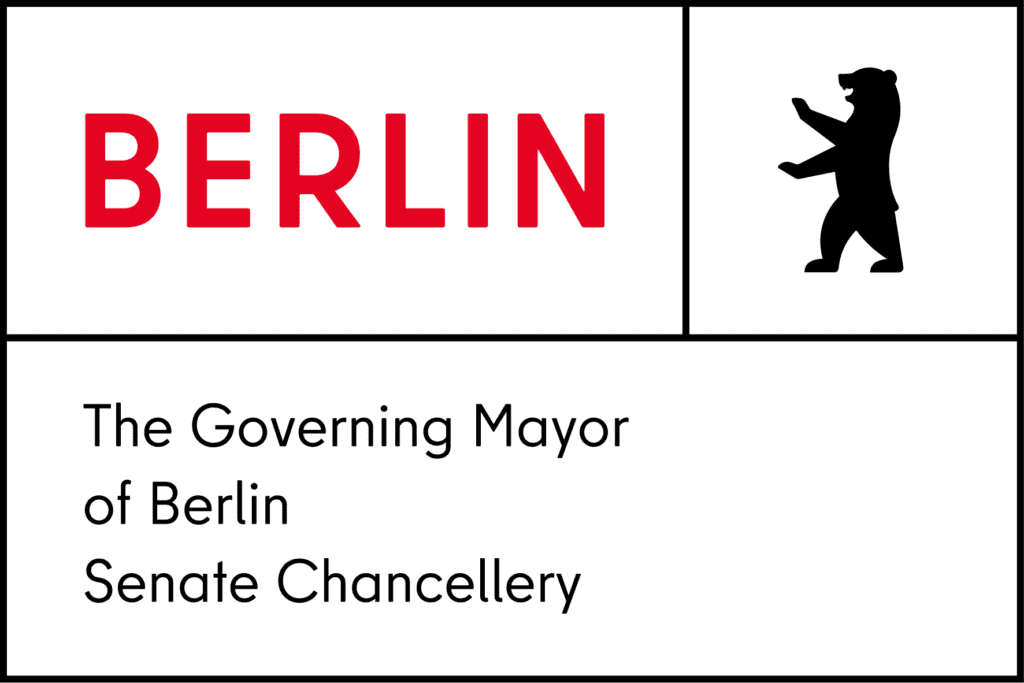Under the motto “Berlin is gardening,” the Kiezlabor in Kreuzberg opened its container in early September for all gardeners – or those who want to become one – to exchange ideas. In the community garden of Bauhütte Kreuzberg, the focus was on designing a greener, more sustainable city and urban gardening in a metropolis like Berlin. Within this framework, lively discussions and workshops took place, all centered around the world of plants. A special highlight was the thematically fitting open-air cinema, which showed short films and a documentary on the topic of “Queer Gardening.”
Here are our impressions from four days of programming!
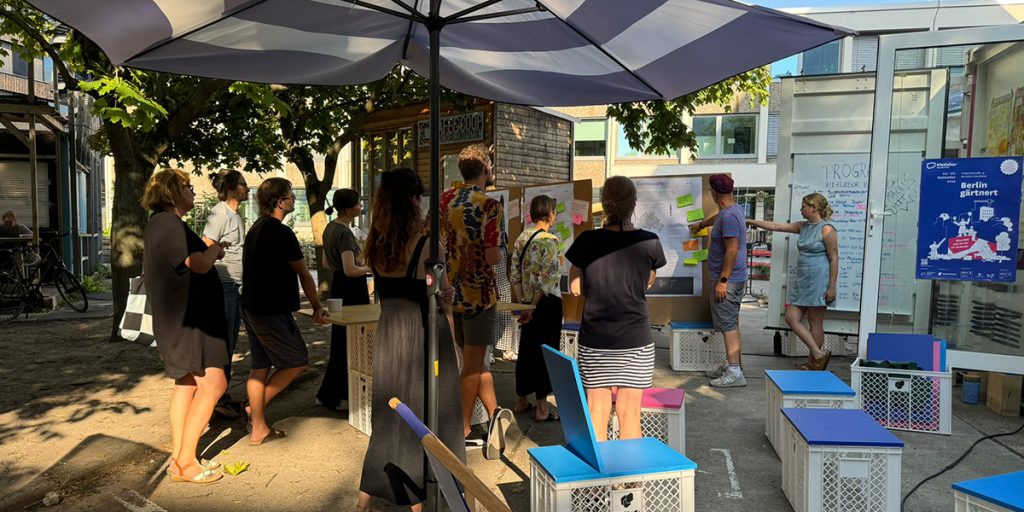
The citizen’s office between tomatoes and herbs
We’re delighted that we were able to collaborate once again with the Friedrichshain-Kreuzberg Citizens’ Office Training Center at the Kreuzberg location. This gave many residents the opportunity to apply for a new passport or register a change of address without needing an appointment. The staff on-site explained the processes behind administrative tasks and gave helpful tips for appointments outside of the Kiezlabor.
Under a parasol, equipped only with a laptop and printer, not only did we have a green and modern workplace in the community garden, but so did the staff from the citizen’s office.
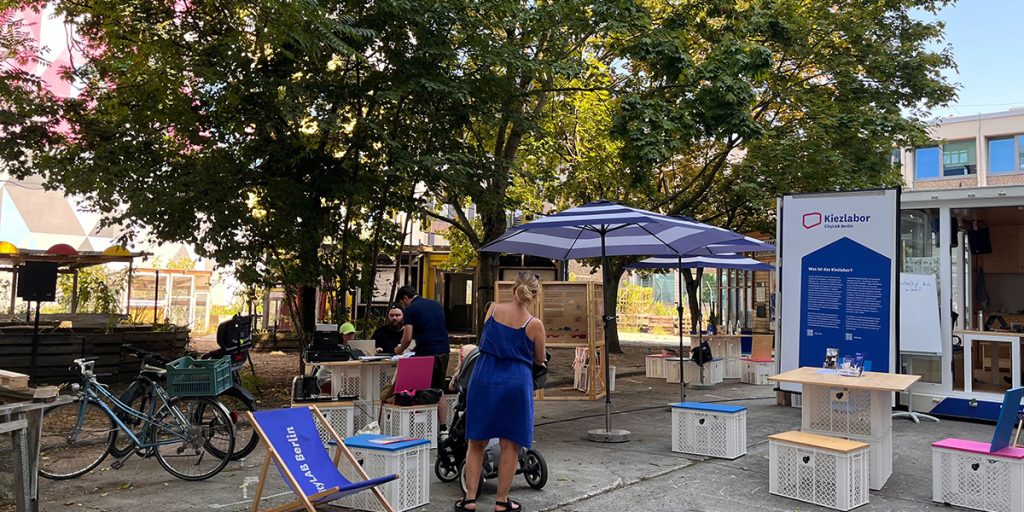
How does gardening in the big city work?
In Berlin, having your own garden is an expensive luxury, often only possible on the outskirts of the city. But with the help of community gardens, space for plants can be created even in densely populated neighborhoods, strengthening the community. Visitors to the Kiezlabor had the chance to learn a lot about the proper care and use of plants. This was particularly evident in the composting workshop, where it became clear that this sustainable process is easier to start than initially thought.
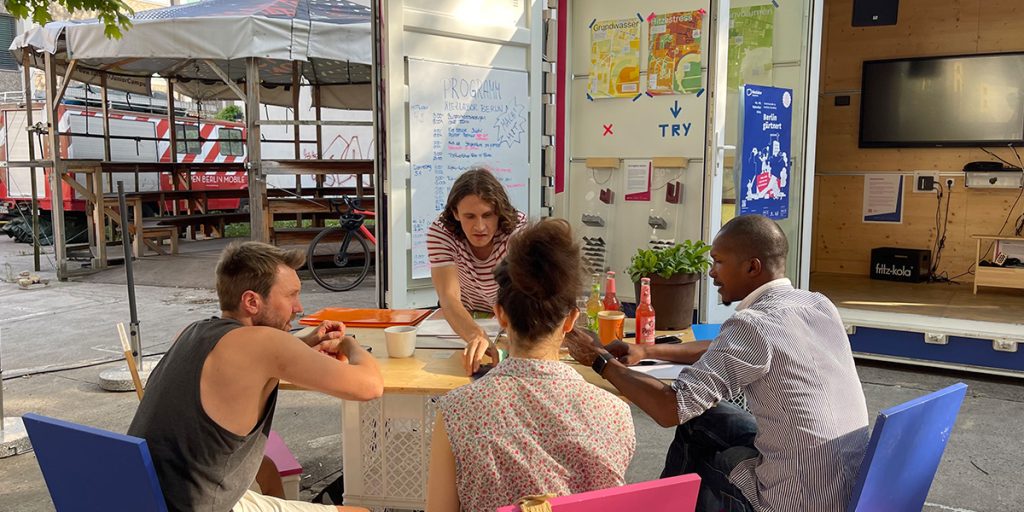
For those without a green thumb, there were also activities focusing on how plants and vegetables from community gardens can be used in many ways – for example, as natural dyes or, naturally, in the form of delicious sauerkraut.
“In this workshop, I was able to observe how fermenting foods like sauerkraut can make a significant contribution to the circular economy. It not only reduces food waste and conserves resources but also fosters a sense of community by bringing people together and promoting access to healthy, self-made food in urban areas.”
Yannick Müller, Team Kiezlabor
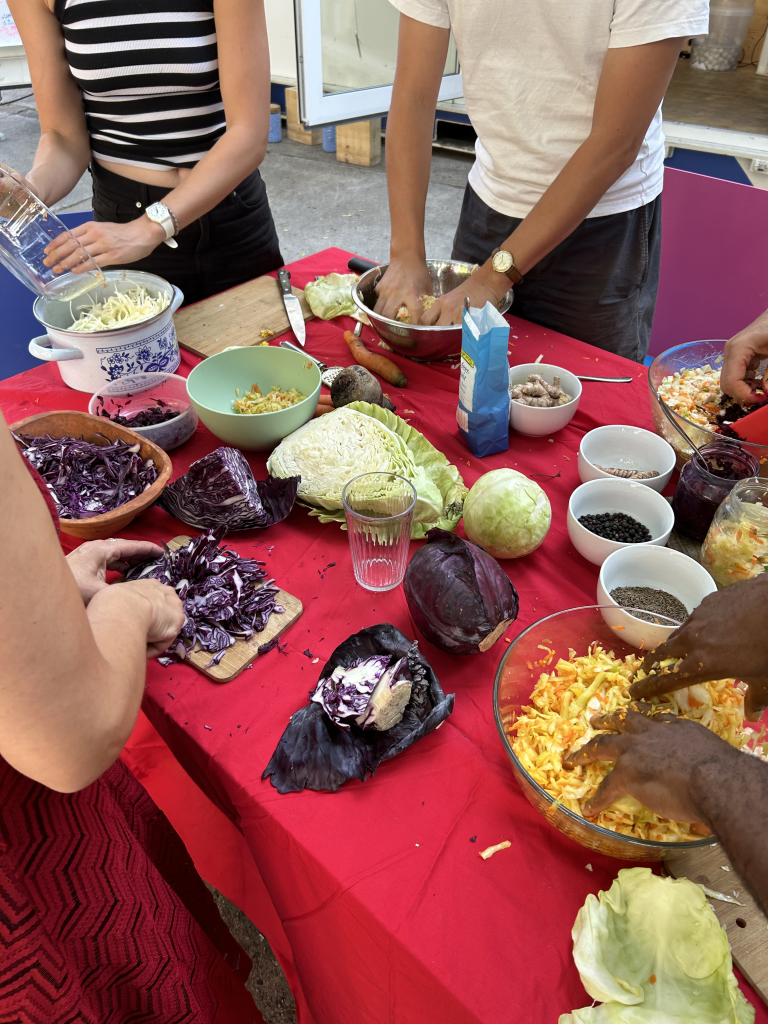
The ‘K’ in Kiezlabor stands for Kino (cinema)
After a hot summer day in Berlin, the Kiezlabor transformed into an open-air cinema for the first time on Thursday evening. The pre-program featured “Paradiesgarten Shorts” by Susanne Isabel Yacoub, portraits of community gardeners from Marzahn-Hellersdorf, which complemented the location’s focus theme. The main film, and a Berlin premiere, was the documentary “Queer Gardening,” the latest installment in the documentary series “Another World is Plantable.” It featured excerpts from 18 interviews conducted by director Ella von der Haide with LGBTQIA* gardeners from North America. These conversations, held in various gardens – from urban vegetable farming in Oakland to a community garden in New York City – shed light on the special relationship between the protagonists and plants and nature.
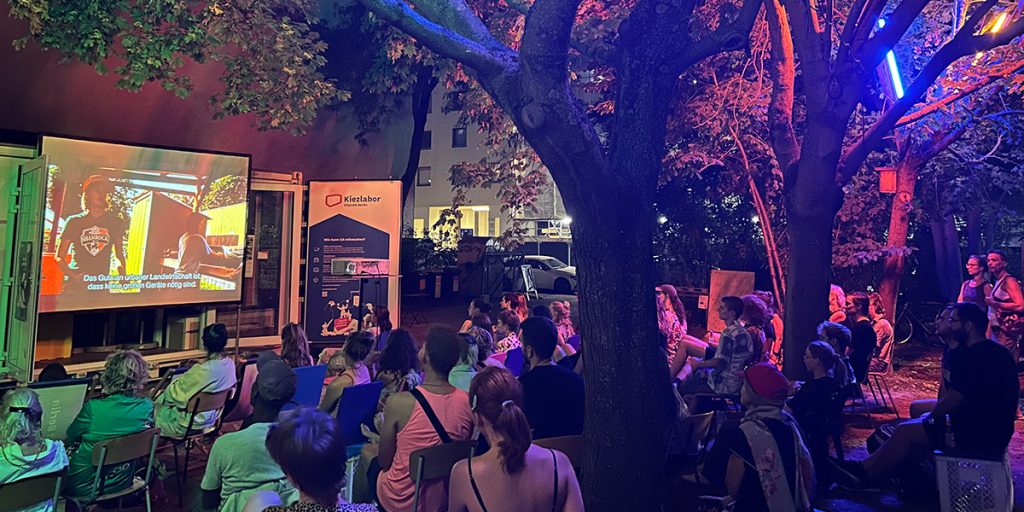
Gardening in Berlin? Definitely doable
After four days of programming, one thing is clear: The structures of a big city are not an obstacle to successful gardening! The exchanges and various workshop formats made it clear that Berlin, as a metropolis, offers numerous opportunities to get involved in gardening and plants, to continue learning, and to actively participate. Community gardening not only strengthens the sense of community in the neighborhood but also contributes to a healthier urban climate. And it doesn’t matter whether or not you have a particularly green thumb – the Kiezlabor shows that even small workshops and actions can have a big impact.
“Urban community gardens are places of welcome. In our case, they can offer women with refugee or traumatic experiences a sense of community and protection. The ‘Hevrîn Xelef’ healing herb garden focuses on self-organization, using gardening to foster conversations between cultures and share ancient knowledge.”
Anuscheh Amir-Khalili, Activist and Anthropologist
The Kiezlabor has one more location this year, in Pankow. Under the motto: “Young in the City – Opening Spaces, Giving Spaces,” from September 10th to October 4th, young Berliners will take center stage as space is created for them to actively shape urban life.
